- Home
- George R. R. Martin
Mississippi Roll Page 23
Mississippi Roll Read online
Page 23
Sam had left first. But Sam had never really been that into it, and he’d wanted to pursue his art career. And he and Roger were still brothers, so they kept in touch, if not as much as they should. Then Paul, their lead vocalist and only tenor, had left to pursue his own music career and drug habit, not necessarily in that order, going on to celebrity followed by celebrity rehab.
Roger was scrupulously square on the drug front, not so much because of moral objections so much as knowing the number of aces and jokers who’d turned their cards while stoned, and more concerningly, the number of black queens drugs had produced.
Then again, anything could be a trigger. Losing your virginity could be a trigger. Even someone else doing that—Alec had been a full-on medieval romantic, drowning himself in King Arthur and tales of chivalry, and his card had flipped when he found out his girlfriend wasn’t a virgin, turning him into a unicorn. And it took a virgin to get him to change back.
Alec was now turning into a unicorn for Renaissance Faires around the country. His wife played Maid Marian, and they had a little girl who could get Daddy to turn back into Little John. It made for spectacular if screwed-up Robin Hood pageants and nice family Christmas cards.
As for Dirk, aka Atlas, their drummer who could lift a piano, last Roger had heard, he’d dropped out of music completely and was working as bouncer, bodyguard, and roadie for stars famous enough to need him.
And those who weren’t? Well, Roger and Jim had kept the Jokertown Boys name, for what it was worth. What it was worth, currently, was a spot on the Natchez so long as Jim also played the calliope and Roger wandered the boat as the Amazing Ravenstone.
He sat at the corner of the bar, wondering what magic he should perform next. The scotch and soda coin trick was a pub classic. Satan’s Barman? Likewise a solid choice, but liable to piss off the actual bartender by cutting into his business, so unless Roger got him in on the act, not a great plan. And the Natchez had picked up a new bartender in New Orleans. He was old and weathered—at least in his late seventies was Roger’s guess—but moved with the familiarity of an experienced barman. “What can I get you, young man?” he asked with a Cajun accent and a toothy grin. Despite his age, his teeth were perfect.
“Scotch and soda,” Roger replied, “and a name?”
“Jack,” said the barman.
Roger considered revealing his horns. “Jack and the Devil” stories were classic and always good for a laugh, but the horns were best saved for a later reveal, especially in the South, where there were a few more people who actually believed in the Devil.
Instead, Roger produced his card with a magician’s flourish. “The Amazing Ravenstone, at your service.” He tilted it to indicate his raven. “And this is Lenore.”
“Nevermore!” cried Lenore, on cue, then, “Acem quzghyn! Find the Lady! Juju Marie!” Then she snatched the card from his hand and began tearing it into confetti, which drifted to the bar.
Jack looked askance, but the torn-and-restored card was an old trick, despite Lenore’s garbled patter. Roger gathered up the scattered bits of paper and squeezed them tight. “Now say the magic words.”
“Sim sala bim!” Lenore cried, and pecked his glove. “Hocus-pocus! Acem quzghyn!”
That was not the usual third magic phrase, but like Wild Fox, the Amazing Ravenstone could improvise. Roger displayed the card, rumpled but miraculously restored all but for one shred pecked out of the center. He located it on the bar and showed that it matched. Then he did another pass and swapped the calling card for the employee ID that got him discount drinks and let him run a tab. “Welcome to the Natchez.”
“Roger, hey?” Jack asked.
“When I’m off duty,” Roger said. “For now, ‘Ravenstone,’ if you please.”
Jack handed the card back along with a scotch and soda with a generous pour.
Roger started to take a sip, but was startled by an exclamation: “It’s Mr. Scratch!” The Person in Black wearing the goth store display case of silver jewelry sat down next to him abruptly, extending his hand in an aggressive handshake. “Ryan Forge, The Dead Report.”
Roger accepted the handshake. “The Amazing Ravenstone.” Ryan’s grip was strong, either overenthusiastic or a power play. Roger returned it with equal firmness, allowing him to mark the back of Ryan’s hand with the pre-inked invisible ink stamp he had slipped over the thumb of his glove. “And you have already met Lenore.” He gestured with his off hand, providing the necessary distraction to Ryan while also blocking the angle of the camera as he slipped the thumb tip off and into a vest pocket. “My thanks for helping find her. I am in your debt. And all debts must be repaid.…”
“Well, we know you’re not really the Devil.” Ryan grinned, outing him. Roger regretted skipping the “Jack and the Devil” patter with Jack. “Sean uploaded the video, and some of our new fans are your old fans. You used to be bigger than ShockSnack, part of the Jokertown Boys!”
“Still am, but thank you, Ryan—and to you as well, Sean,” Roger added with his most charming insincerity to the cameraman with the cap. “One can never have too much publicity.”
“Nah, that’s my brother, Kevin,” Ryan corrected. “The guy with the awesome EarDrums there is my cousin, Sean Venters.” He pointed one silver-beringed finger to the blonde with the solar backpiece who was wearing a pair of garish and overbranded headphones. “But for a repayment deal, we were hoping you could tell us about the ghosts here.”
“I assume you don’t mean the … friendly kind … like at brunch today.”
“Fucking Wild Fox,” Sean swore.
“Sean, you idjit.” Ryan glared at him. “Now we have to bleep that out.”
“Won’t be the first time.”
“Well,” Roger said, considering, “I assume you’ve read the brochure and know about the ghost of Captain Leathers, how he’s sometimes seen to appear in the steam. You’ve heard of the other ghosts who’ve perished on the Natchez, poor lost souls one and all. But there is one other spirit that may be here, or more than one. It’s a tale I was told down in New Orleans, at the start of this journey. Have you heard the legend of Delphine LaLaurie?”
Jack dropped a glass, which shattered with a loud crash, causing Ryan to nearly leap out of his skin and Jack to swear in French. “Merde!” Roger just sipped his drink. “Don’t be talkin’ ’bout her,” Jack admonished. “This boat’s got enough haints without callin’ up ol’ Madame LaLaurie.”
It really couldn’t have gone better if Roger had planned it.
“What’s the deal with Madame Lorelei?” Ryan asked. Kevin pointed his camera up at the barman.
“LaLaurie,” Jack corrected, but kept his mouth shut tight otherwise, sweeping up the broken glass, until Ryan got out his wallet and laid a twenty on the bar.
Jack took it, nodding to Roger, then leaned down conspiratorially toward the camera. “Well, since he’s set to tell you about her anyway, let me tell you what my ma tol’ me: Madame LaLaurie was the wickedest woman in New Orleans, and that takes doin’. She was a slave master, a murderess, and what’s more, a witch. She had this big house on Royal Street, and one day, the kitchen caught fire. Folk came and they found this ol’ slave woman there, chained to the stove. Woman swore Madame LaLaurie said that tomorrow, she’d take her up to the attic to ‘serve her.’ But nobody ever came back from that damned attic, so she set the fire. Then the police asked Madame LaLaurie for the keys, so they could see if the ol’ woman’s story was true, but Madame LaLaurie was proud and refused. But police back then were worth more than they are now, ’cause they broke down that attic door. And there they found seven slaves chained to the wall, each tore up worse than the last. But there was ain’t much they could do for them, and they all died within a week.”
Ryan’s eyes were wide with horror. “What happened to Madame Lorelei?”
“LaLaurie. She flew off, free as a bird. Went back to Paris they say, or maybe Hell. But nobody ever heard from her again.”
“Not q
uite,” Roger corrected, embroidering Jack’s story in his mind. “The truth is, like Jack said, Delphine LaLaurie was a witch, one descended from the Merovingian kings and their ancestress, the fairy princess Melusine. But as everyone knows, the fey are fickle. Those they favor, they kiss on the hand, sweet as a courtier, and treat to every delight—but to keep their immortality, the fey also have to pay the teind to Hell, a price of seven souls. And the Devil’s price is always those they favor most.” Roger gave a deep Mephistophelean chuckle. “From what I heard from an antique dealer on Royal Street whose shop was in the shadow of Delphine LaLaurie’s accursed house, that attic door had seven locks and her key ring had seven keys, and after she left, in the ashes of the fire the old woman had set, they found them all.”
With that, Roger produced a skeleton key. “And he sold me one.” The key was iron, pitted and rusted, but well-preserved for its appearance, almost two hundred years in age. “Here.” He tossed it to Ryan.
The ghost hunter caught it, then immediately dropped it onto the bar as if it had burned him. “It’s hot!”
“It always is,” Roger lied, failing to mention the skier’s chemical hand warmer he’d activated in his pocket a minute before. “The fires of Hell, and the fact that, they say, since Delphine LaLaurie wasn’t able to pay the teind properly, the seven souls remained trapped in the vestibule of Hell, tied to the keys to their prison.” Roger picked up the key with his left hand, then placed it on the palm of the right. “Want proof?”
The key was perfectly balanced. On the internet you could buy dozens of haunted key illusions in silver or gold, but they were all too shiny and new to seem genuine. But the trick was centuries old, and the Regency-era way to work it was to sort through assorted old keys till you found one with good balance. Steampunk jewelers now sold bags of reproductions.
Roger held his hand perfectly still, but perfectly still was never perfect. The faint imperceptible tension and flexing to hold the palm open was sufficient to unbalance the key and, by degrees, to cause it to turn as if by a ghostly hand. “The soul still tries to escape its fate, to open the lock to its prison, but the lock is no longer there.” The key turned another few degrees. “But it’s good that it’s not, because the antique dealer said if all seven keys are returned to that attic on Royal Street, they can unlock the Gates of Hell to let Delphine LaLaurie pay her teind.”
Roger waited, letting the key turn until Ryan took the bait and pointed to it in wonder.
Roger gasped sharply, the sudden intake of breath causing Ryan to freeze. “What?” the ghost hunter asked. “What is it?”
“Can you not see?” Roger asked in tones of melodramatic horror. “But no, of course not. You do not have the Devil’s eye. Look, see what I see!”
With that, Roger raised his left hand to his left eye, lifting the eye patch and revealing the eye blacked out by the blackout contact, at the same time depressing the button of an antique dealer’s black-light penlight secreted in his left hand and pointing such that it looked like the beam was emanating from his eye.
“The spirit of Madame LaLaurie is here!” The invisible ink on the back of Ryan’s hand fluoresced, revealing the shimmering impression of a kiss, as if from a beautiful woman’s lips. “She has marked you as her favorite!”
“Juju Marie!” cried Lenore. “Find the Lady!”
Ryan Forge screamed and ran out of the bar as if the ghost of a slave-holding serial killer fairy princess devil witch were after his soul. Kevin Forge followed with his camera.
Sean Venters remained as Roger flipped down his eye patch and put away the key. “Invisible ink and black light, right?”
Roger didn’t respond, then Sean pulled out an antique dealer’s penlight of his own.
“A magician never reveals his secrets.” Roger tipped his hat, briefly flashing his horns. “But I must now bid you adieu. I’ve a show to prepare for.”
Roger produced a few passes and laid them on the bar. “Until anon, gentlemen.”
The crowd at the Jokertown Boys show that night in the Bayou Lounge theater was the usual: most of them passengers with nothing better to do; some of them of an age to have heard the songs and liked them for nostalgia’s sake, even if they’d never bought the albums; some too young to have heard them as adults, but not minding oldies from their childhood; the rest some variety of fan, but mostly there to revisit or recapture lost youth, or worse, those who’d never left it.
Shirley was parked in the front row, dressed like a Spanish dueña had raided the jewelry trays at the same goth shop as Ryan Forge. Roger wasn’t certain whether he’d never learned her last name or had blotted it out of his memory or she’d had it changed legally, but it didn’t matter. She was Shirley Ravenstone now, or worse, Mrs. Ravenstone, which is what she introduced herself as to everyone but Roger, causing no end of confusion to Jim, whom the wild card had left the most gullible or at least the most literal-minded man in the universe. Jim had eventually sorted it out to Shirley being married to some completely different Roger Ravenstone, hence the confusion. Shirley also claimed to be the Jokertown Boys’ biggest fan, which Jim still believed.
Roger, sadly, believed it, too. Shirley had always been obese—not a joker, just a fat nat—but now she got about in a scooter. She’d had her enormous breasts tattooed with both his names, ROGER on the right, RAVENSTONE left, done in florid brushwork courtesy of Sam’s tail, always proudly displayed with a low-cut top, today in black lace.
Sam had apologized for this many times since.
Shirley had been the head of the Newark chapter of their fan club, coming to all their New York shows. She’d followed them to Vegas, staying even after Paul split, taking more than half their fans with him and most of their hits, not to mention their joker street cred.
The rest of the boys were all some variety of joker-ace, with emphasis on ace, except Roger, a latent who faked it really well. They could all pass for nats with little or no costuming.
But Paul had had the wild card turn his flesh to rubber and his bones to jelly, and the only way he could stand upright was by means of an elaborate armature of braces and polio crutches. His perfect teeth were dentures glued in. And while his elasticized vocal cords and ridiculously expandable lungs gave him an increased vocal range, he’d practiced for years to turn his joker into anything approaching a deuce, let alone an ace. Calling himself “Pretty Paulie” was as much self-mockery as bragging about his mimicry.
Lenore had learned most of her obscene vocabulary from Paul.
The fact was, Paul hurt. Not just the mental anguish of being a joker and having the world view him as a monster or at best a pitiful freak, but actual physical pain. Paul hadn’t been the first of the boys to turn his card, but when they’d found him at the base of the orphanage stairs, he’d screamed like every bone in his body was broken, and the screaming never stopped.
Paul’s drug addiction started with the prescription painkillers he needed to keep him upright, and when the doctors’ drugs began to betray him like his jellied bones, he had to turn to less legal ones. Roger couldn’t blame him now, but he had then.
The trouble was, Paul was the talented one. Not that the rest of them didn’t have their own talents—Roger was a good musician and a better showman, Sam had drawn their album covers, Jim was a wizard with a synthesizer, Alec with his passion for history had dug up some Childe ballads and Tin Pan Alley classics that had done well for them, and Dirk …
Well, Dirk had answered their ad for a drummer, was a joker-ace who fit their image, was easygoing and an awesome roadie.
But Paul had his pain and had turned it into beauty, taking teen angst and the tragedy of a crippled joker boy whom no one could ever love and distilling it into songs that a million lovelorn nat girls had taken as the answer to their own loneliness. Combined with a heartbreaking tenor, it was a recipe for success.
But the tenor was gone now, along with a bass and two baritones, leaving all the Jokertown Boys’ complex five- or six-part
harmonies out the window. Ditto Paul’s hits.
But Roger still had his bass, opera-trained if not top operatic caliber, and used it as he strode across the stage, talking the audience up. “Anyone sad tonight?” A hubbub of voices murmured vague agreement from the Natchez’s ballroom. “Anyone who’s feeling a bit down?” Again, agreement, slightly louder and obviously drunk. “Anyone who’s got the blues?” Heads nodded like a collection of bobblehead dolls. “This song goes out to someone in the audience.…”
Shirley squirmed in her scooter, making her breasts bounce ROGER and RAVENSTONE. “Little lady right here in the first row…” Roger looked down at Shirley and smiled—always the same showman’s smile—but then kept looking until his gaze and the spotlight Jim was controlling landed on a young girl, about thirteen, with red hair and a pink gingham dress. “Little lady named Marie…”
Marie glared defiantly. Her parents were beside her, Mom three sheets to the wind, Dad about four.
“Juju Marie!” cried Lenore. “Juju Marie!”
Marie had a highball glass beside her, cola brown, a cherry marking it as a Roy Rogers children’s mocktail. The lime atop her father’s cola marked his as an unvirgin Cuba libre. Roger watched as Marie reached for her drink and, with a deft magician’s pass, swapped the garnishes, took her father’s glass now with the cherry on top, and raised her Roy libre in salute.
“Marie who knows magic…” Roger winked. “… and something about a little number we call ‘Jokertown Blues.’”
The crowd roared as he launched into the old standard: “If you go down to Jokertown anyone you might see might be a little old lady name of Juju Marie.…”
Marie proceeded to join her parents in their drinking binge. It was probably all to the good. Dad had had too much, and it looked like Marie could use a stiff drink, even at thirteen. Especially at thirteen.
Sam had originally recorded “Jokertown Blues,” his one song on their first album and an easy number for a baritone, their voices one of the few traits that set the Washburn brothers apart. The song, however, could also be done by a bass, especially with a tempo change to Cajun drop blues, a switch that Roger had found went over well with the crowds along the Mississippi.

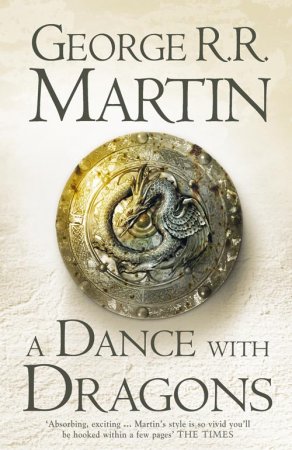 A Dance with Dragons
A Dance with Dragons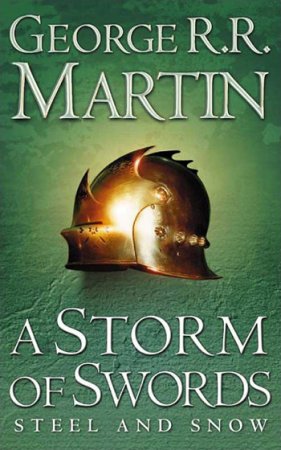 A Storm of Swords
A Storm of Swords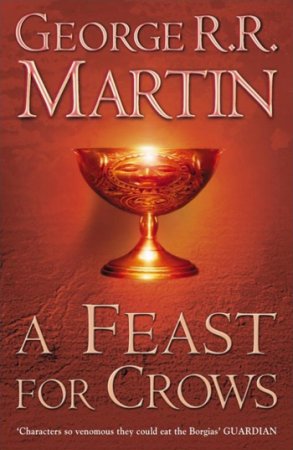 A Feast for Crows
A Feast for Crows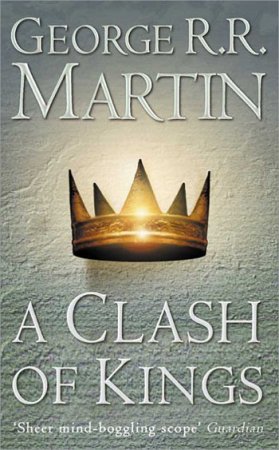 A Clash of Kings
A Clash of Kings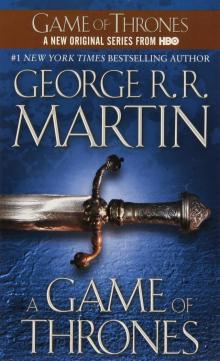 A Game of Thrones
A Game of Thrones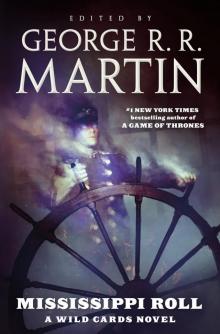 Mississippi Roll
Mississippi Roll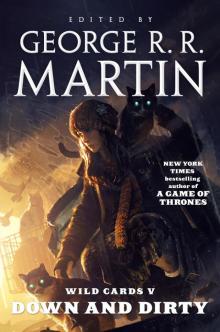 Wild Cards V: Down and Dirty
Wild Cards V: Down and Dirty Busted Flush
Busted Flush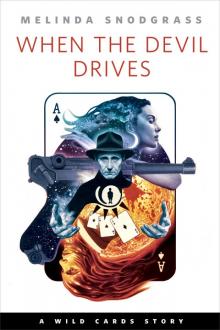 When the Devil Drives
When the Devil Drives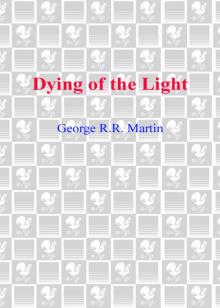 Dying of the Light
Dying of the Light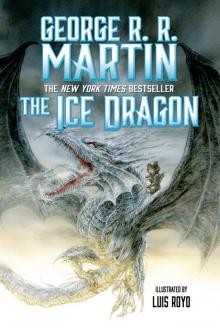 The Ice Dragon
The Ice Dragon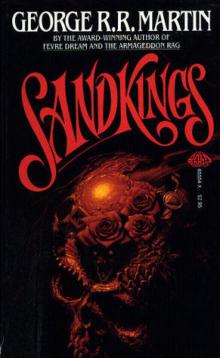 Sandkings
Sandkings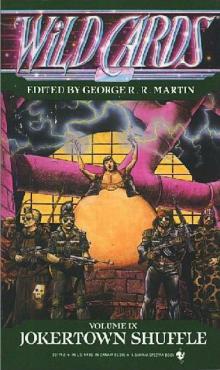 Jokertown Shuffle
Jokertown Shuffle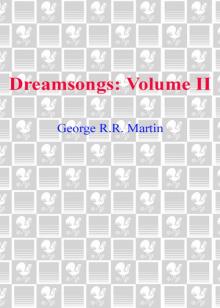 Dreamsongs. Volume II
Dreamsongs. Volume II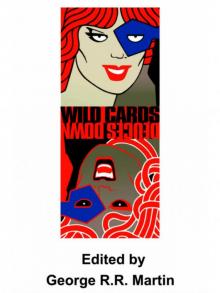 Deuces Down
Deuces Down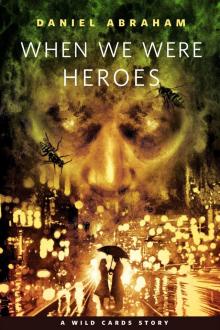 When We Were Heroes
When We Were Heroes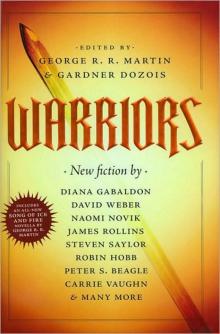 Warriors
Warriors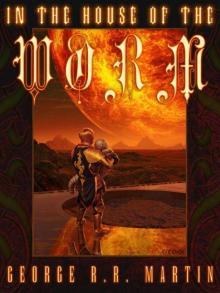 In the House of the Worm
In the House of the Worm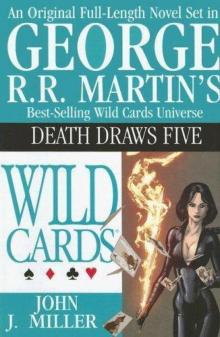 Death Draws Five
Death Draws Five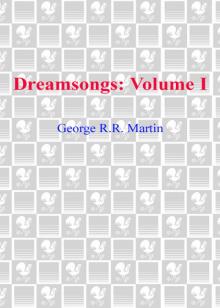 Dreamsongs. Volume I
Dreamsongs. Volume I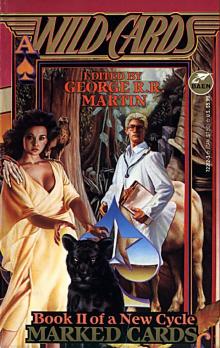 Marked Cards
Marked Cards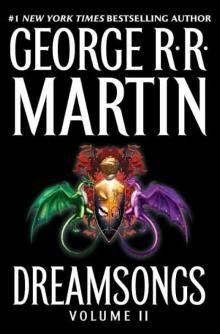 Dreamsongs
Dreamsongs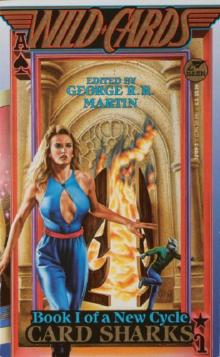 Card Sharks
Card Sharks Dangerous Women
Dangerous Women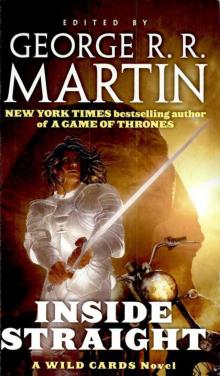 Inside Straight
Inside Straight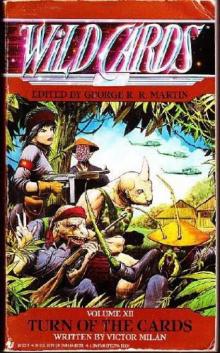 Turn of the Cards
Turn of the Cards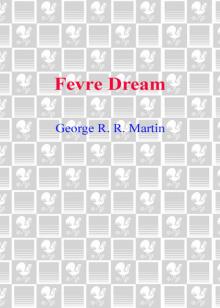 Fevre Dream
Fevre Dream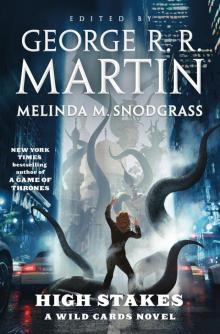 High Stakes: A Wild Cards Novel
High Stakes: A Wild Cards Novel Windhaven
Windhaven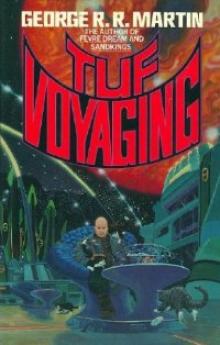 Tuf Voyaging
Tuf Voyaging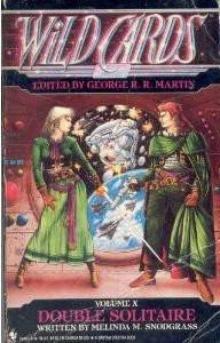 Double Solitaire
Double Solitaire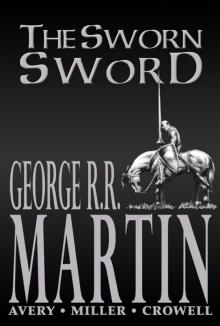 The Sworn Sword
The Sworn Sword Low Chicago
Low Chicago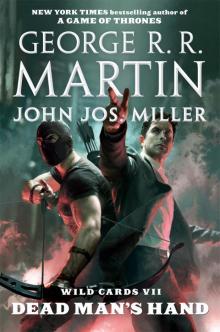 Dead Man's Hand
Dead Man's Hand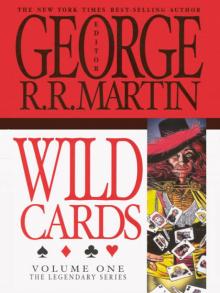 Wild Cards
Wild Cards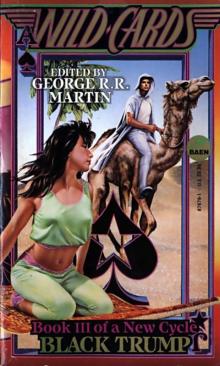 Black Trump
Black Trump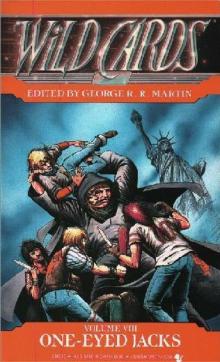 One Eyed Jacks
One Eyed Jacks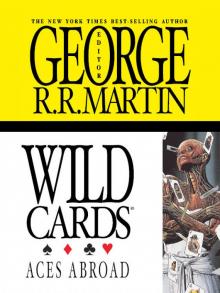 Wild Cards: Aces Abroad
Wild Cards: Aces Abroad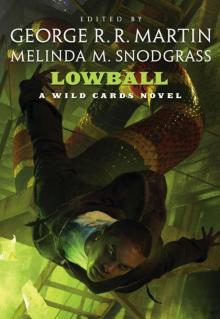 Lowball: A Wild Cards Novel
Lowball: A Wild Cards Novel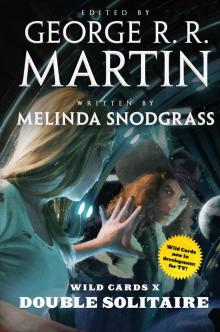 Double Solitaire (2019 Edition)
Double Solitaire (2019 Edition)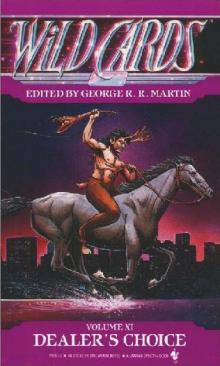 Dealer's Choice
Dealer's Choice Ace in the Hole
Ace in the Hole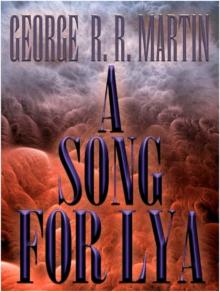 A Song for Lya: And Other Stories
A Song for Lya: And Other Stories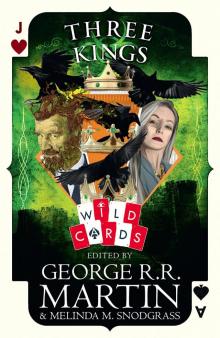 Three Kings
Three Kings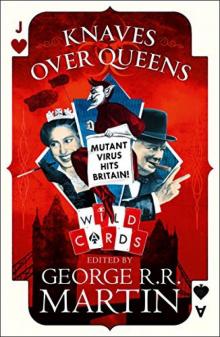 Knaves Over Queens
Knaves Over Queens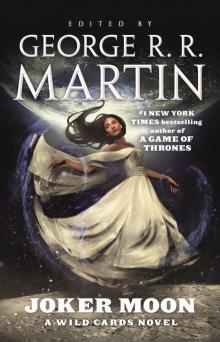 Joker Moon
Joker Moon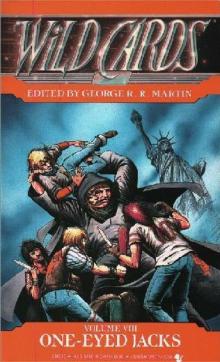 One Eyed Jacks wc-8
One Eyed Jacks wc-8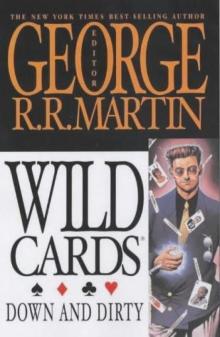 Down And Dirty wc-5
Down And Dirty wc-5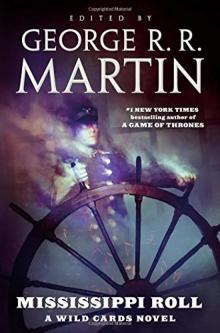 Mississippi Roll_A Wild Cards Novel
Mississippi Roll_A Wild Cards Novel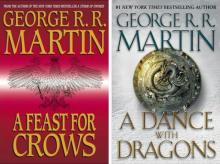 A Feast for Dragons
A Feast for Dragons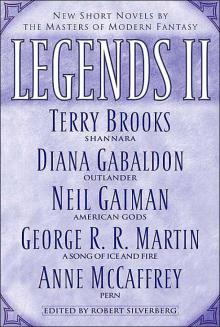 The Sworn Sword ttodae-2
The Sworn Sword ttodae-2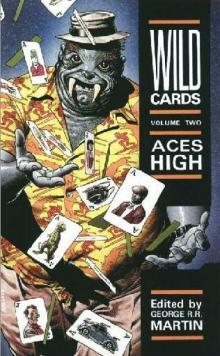 Aces High wc-2
Aces High wc-2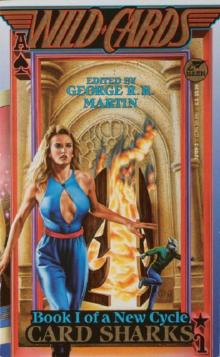 Wild Cards 13 : Card Sharks
Wild Cards 13 : Card Sharks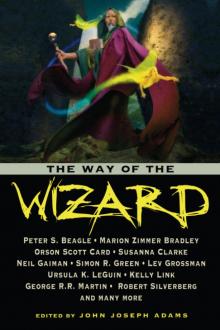 Way of the Wizard
Way of the Wizard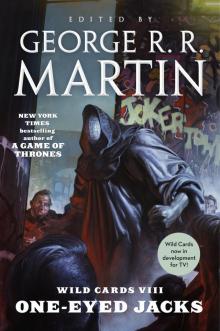 Wild Cards VIII: One-Eyed Jacks
Wild Cards VIII: One-Eyed Jacks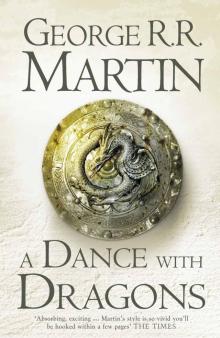 A Dance With Dragons: Book 5 of A Song of Ice and Fire (Song of Ice & Fire 5)
A Dance With Dragons: Book 5 of A Song of Ice and Fire (Song of Ice & Fire 5)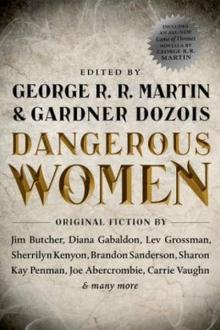 The Princess and The Queen, Or, The Blacks and The Greens (a song of ice and fire)
The Princess and The Queen, Or, The Blacks and The Greens (a song of ice and fire)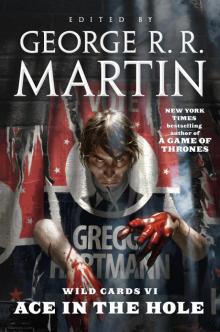 Wild Cards VI--Ace in the Hole
Wild Cards VI--Ace in the Hole The World of Ice & Fire: The Untold History of Westeros and the Game of Thrones (A Song of Ice and Fire)
The World of Ice & Fire: The Untold History of Westeros and the Game of Thrones (A Song of Ice and Fire)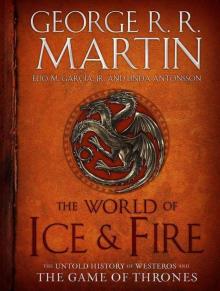 The World of Ice & Fire: The Untold History of Westeros and the Game of Thrones
The World of Ice & Fire: The Untold History of Westeros and the Game of Thrones Busted Flush wc-19
Busted Flush wc-19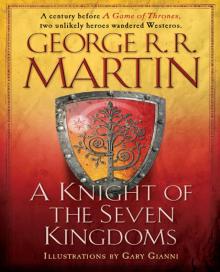 A Knight of the Seven Kingdoms
A Knight of the Seven Kingdoms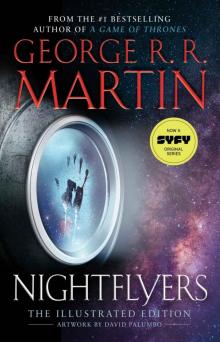 Nightflyers: The Illustrated Edition
Nightflyers: The Illustrated Edition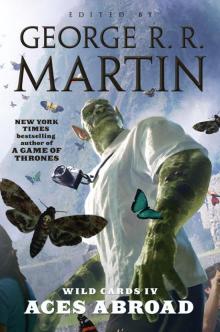 Wild Cards IV
Wild Cards IV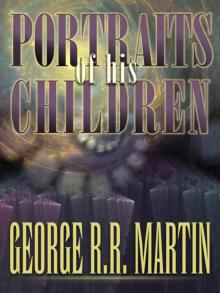 Portraits of His Children
Portraits of His Children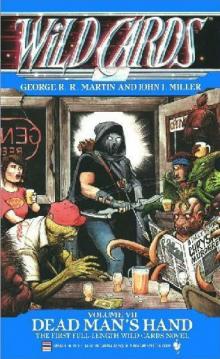 Dead Mans Hand wc-7
Dead Mans Hand wc-7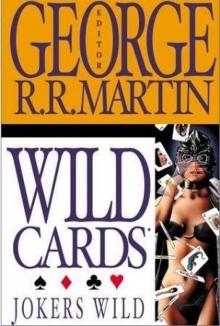 Jokers Wild wc-3
Jokers Wild wc-3 The Lonely Songs of Laren Dorr
The Lonely Songs of Laren Dorr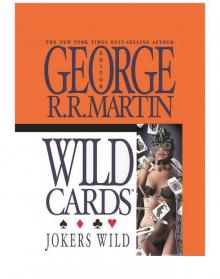 Wild Cards III: Jokers Wild
Wild Cards III: Jokers Wild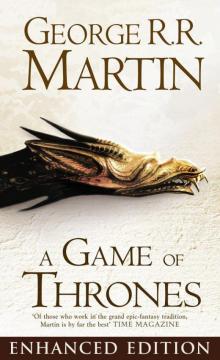 A Game of Thrones Enhanced Edition
A Game of Thrones Enhanced Edition Nightflyers & Other Stories
Nightflyers & Other Stories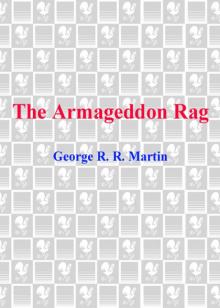 Armageddon Rag
Armageddon Rag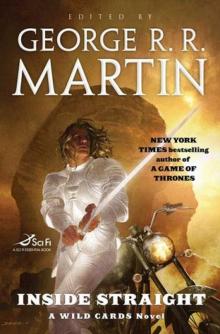 Wild Cards: Inside Straight
Wild Cards: Inside Straight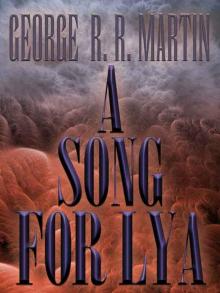 A Song for Lya
A Song for Lya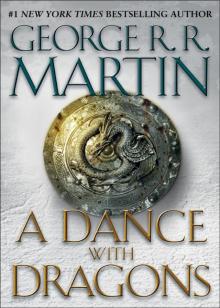 A Dance with Dragons: A Song of Ice and Fire: Book Five
A Dance with Dragons: A Song of Ice and Fire: Book Five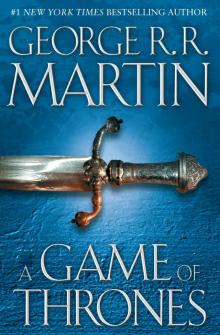 Song of Fire & Ice 01 - A Game of Thrones
Song of Fire & Ice 01 - A Game of Thrones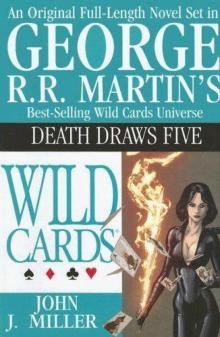 Death Draws Five wc-17
Death Draws Five wc-17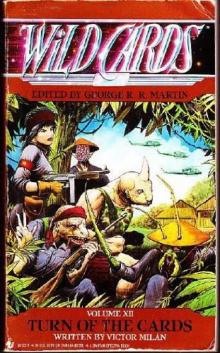 Turn of the Cards w-12
Turn of the Cards w-12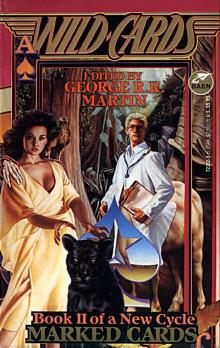 Wild Cards 14 - Marked Cards
Wild Cards 14 - Marked Cards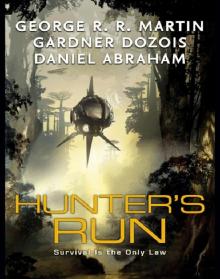 Hunter's Run
Hunter's Run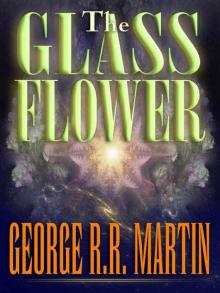 The Glass Flower
The Glass Flower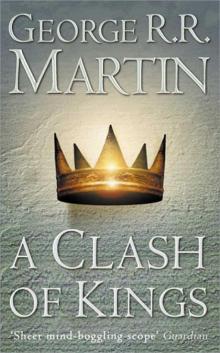 A Clash of Kings asoiaf-2
A Clash of Kings asoiaf-2 A Game of Thrones 5-Book Bundle: A Song of Ice and Fire Series: A Game of Thrones, A Clash of Kings, A Storm of Swords, A Feast for Crows, and A Dance with Dragons (Song of Ice & Fire)
A Game of Thrones 5-Book Bundle: A Song of Ice and Fire Series: A Game of Thrones, A Clash of Kings, A Storm of Swords, A Feast for Crows, and A Dance with Dragons (Song of Ice & Fire)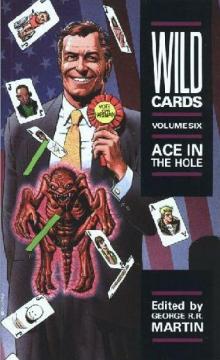 Ace In The Hole wc-6
Ace In The Hole wc-6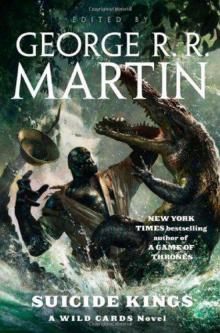 Suicide Kings wc-20
Suicide Kings wc-20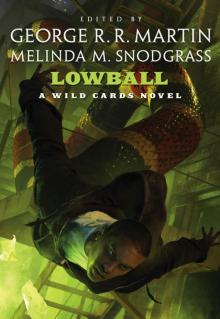 Lowball
Lowball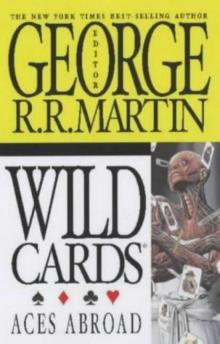 Aces Abroad wc-4
Aces Abroad wc-4 George R. R. Martin's a Game of Thrones 4-Book Bundle
George R. R. Martin's a Game of Thrones 4-Book Bundle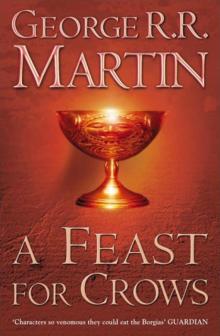 A Feast for Crows asoiaf-4
A Feast for Crows asoiaf-4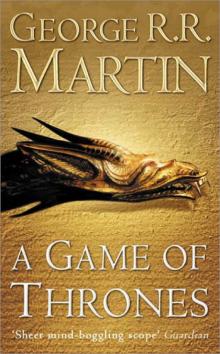 A Game of Thrones asoiaf-1
A Game of Thrones asoiaf-1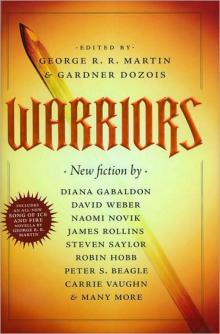 The Mystery Knight ttodae-3
The Mystery Knight ttodae-3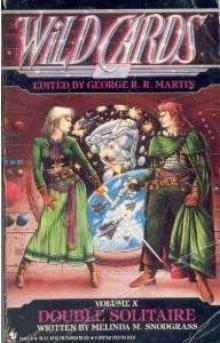 Double Solitaire w-10
Double Solitaire w-10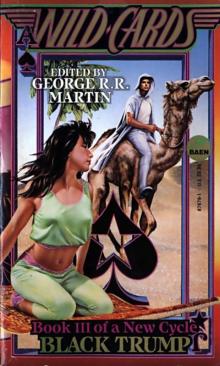 Wild Cards 15 - Black Trump
Wild Cards 15 - Black Trump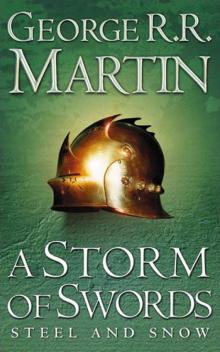 A Storm of Swords asoiaf-3
A Storm of Swords asoiaf-3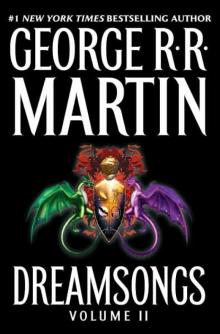 The Hedge Knight ttodae-1
The Hedge Knight ttodae-1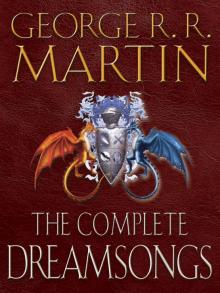 Dreamsongs 2-Book Bundle
Dreamsongs 2-Book Bundle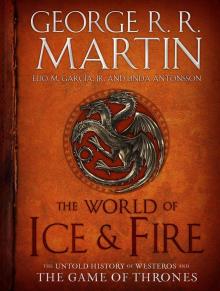 The World of Ice & Fire
The World of Ice & Fire Starlady & Fast-Friend
Starlady & Fast-Friend Old Mars
Old Mars Fantasy For Good: A Charitable Anthology
Fantasy For Good: A Charitable Anthology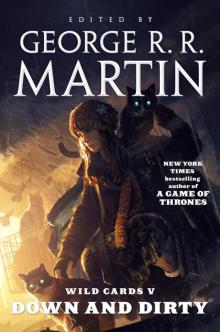 Wild Cards V
Wild Cards V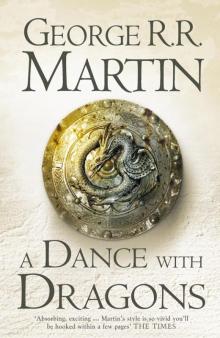 A Dance with Dragons asoiaf-5
A Dance with Dragons asoiaf-5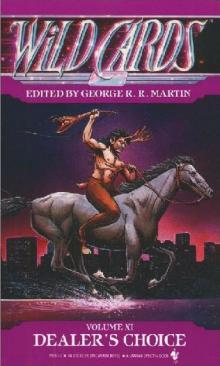 Dealer's Choice w-11
Dealer's Choice w-11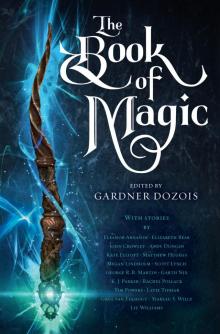 The Book of Magic
The Book of Magic A Game of Thrones 4-Book Bundle
A Game of Thrones 4-Book Bundle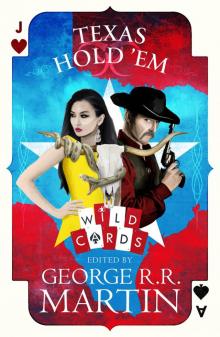 Texas Hold 'Em
Texas Hold 'Em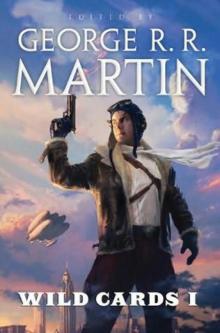 Wildcards wc-1
Wildcards wc-1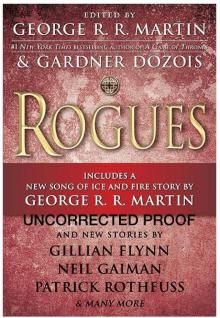 Rogues
Rogues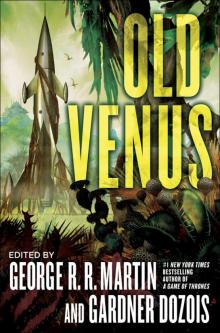 Old Venus
Old Venus